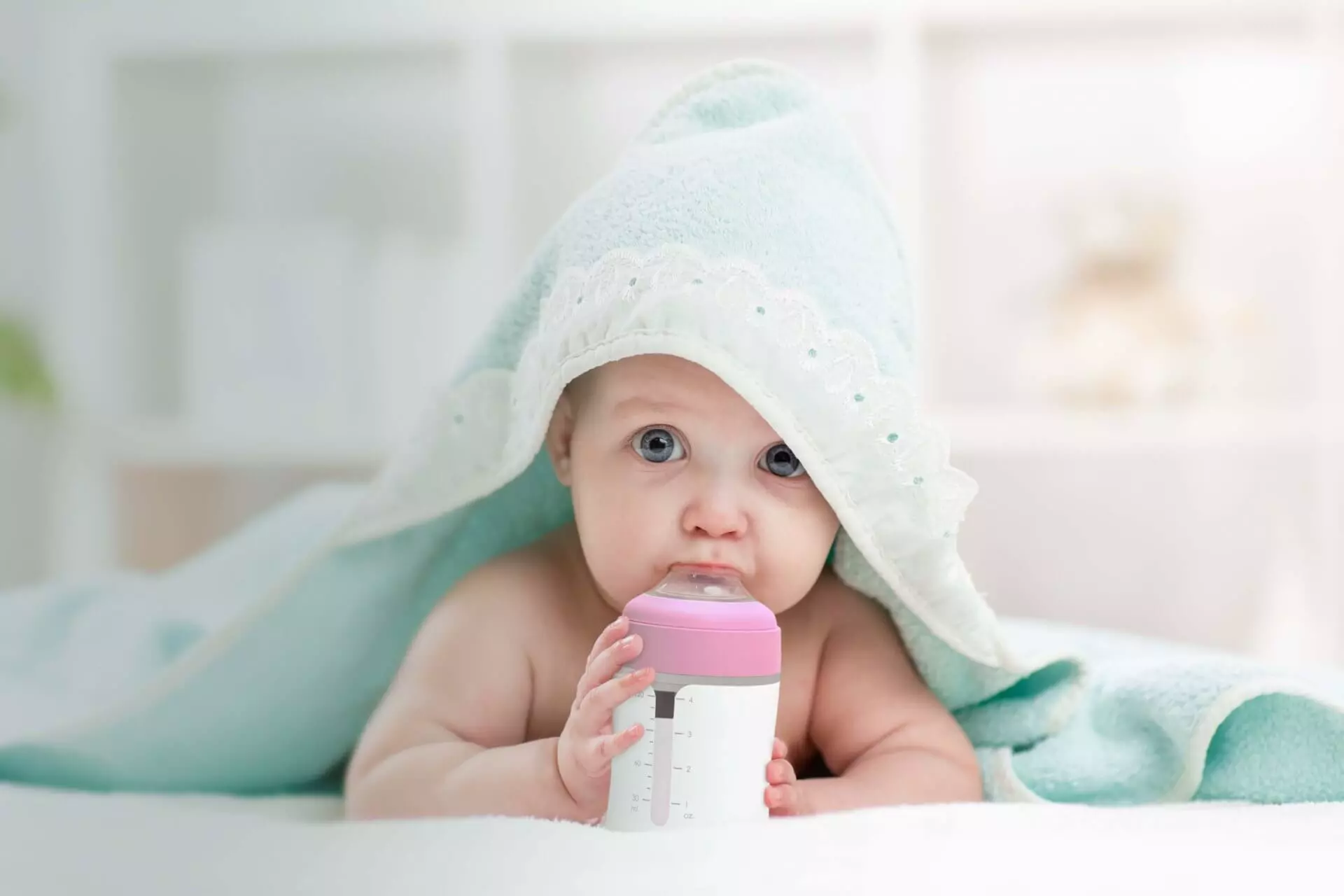Is Baby Water Bottle Safe?
Learn Now: Is Baby Water Bottle Safe?
Table of contents
Whether you buy bottled water for your baby or use tap water for infant formula, it’s essential to know what to look for.
Bottled water may not be sterile, and some brands may have toxins. If you want to avoid these hazards, choose a reputable and reliable brand.
If you’re using bottled water for your infant formula, ensure it’s a low-fluoride variety. Fluoride is safe for your baby’s teeth as long as it’s below the recommended limit. If you’re worried, consult your doctor.
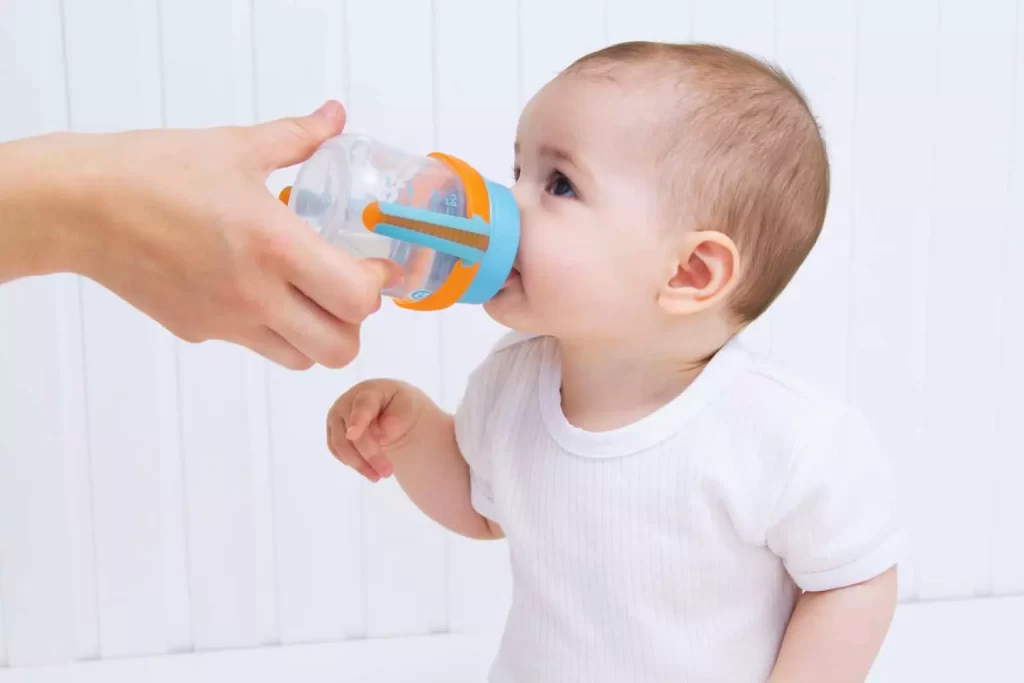
Many people have private wells. Although healthy water is usually safe, you should still test it regularly. In the U.S., bottled water for infant formula is considered safe as long as it meets FDA water quality standards. If you want to use bottled water, it’s best to boil it beforehand.
Sterilizing the water is also essential. If your bottled water is not sterile, place it in a clean glass container and fix it with boiling water. You can also rinse the bottle out with boiled water.
Mineral water is fine for babies as long as the dissolved minerals are not too high. This water is typically extracted from groundwater. However, some minerals aren’t suitable for babies. If you have a private well, use it with caution when mixing your baby formula. Water from wells can contain bacteria and toxins.
Some experts recommend using distilled water in baby formula. Distilled water is the purest form of water. The distilled water does not contain fluoride but does lack minerals.
Distilled water is not recommended for babies under six months. However, distilled water is fine for toddlers who consume a healthy diet.
Youtube Video About Cleaning Baby Bottle
What is Baby Water Bottle?
Choosing the right baby water bottle can be a difficult decision. There are several different types, including bottled, filtered, and spring water. It is essential to know which one is best for your baby. There are also questions about how much fluoride is in the water and how it affects your baby’s teeth.
Can You Put Gripe Water in a Baby Bottle?
Gripe water is a liquid that helps babies ease gas and digestive discomfort. This is a common remedy for often very fussy newborns and infants. However, some precautions should be taken before giving your child this product.
How to Sterilize Baby Bottles?
Keeping your baby’s bottles clean and germ-free is essential. You can sanitize the bottles by boiling them or steaming them. A diluted bleach solution is another method for sanitizing your baby’s bottles.
This safe and effective technique can be used to sanitize bottles, nipples, and even bottle parts.
You can also sanitize baby bottles by using a microwave. Just make sure you don’t use this method on newborn babies.
Sterilizing your baby’s bottles is a good idea if you live in an area with questionable water quality. You may also want to sterilize baby bottles when traveling to a place with contaminated water.
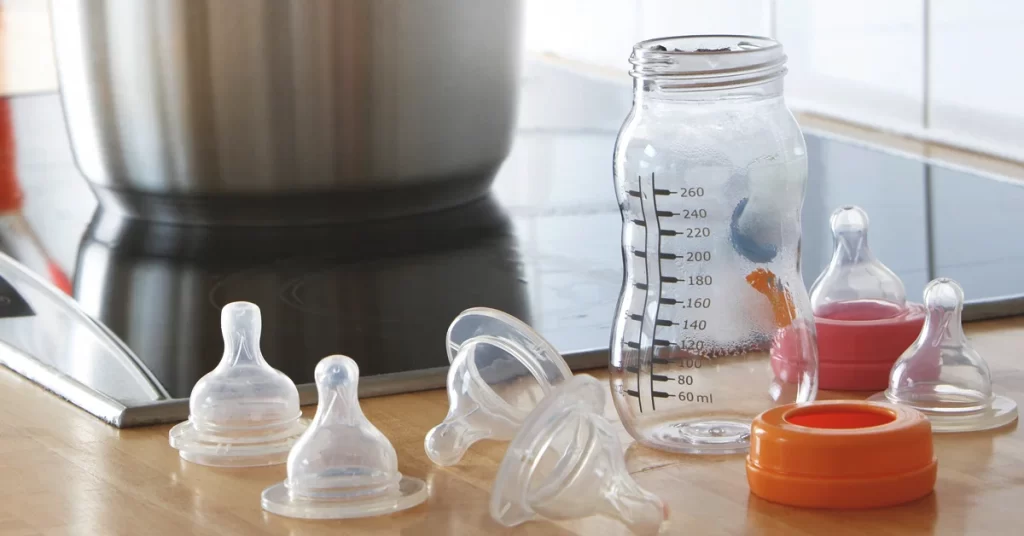
The CDC recommends using a specific container for sanitizing baby bottles. You should also use a bottle brush to scrub the nipple. The CDC also recommends using a diluted bleach solution to sanitize baby bottles.
This can be achieved by mixing two teaspoons of unscented bleach with 1 gallon (16 cups) of water. The answer should be mixed thoroughly and then immersed in the bottle for two minutes.
You can also do this in a microwave by heating the water on high for one to two minutes.
If you can’t use a dishwasher, you can sanitize your bottles by boiling them or using an electric sterilizer. While these methods are effective, not all dishwashers can produce enough heat to sanitize baby bottles properly. You can also clean baby bottles by hand.
Choosing the Best Baby Water Bottle
Choosing the best baby water bottle for your little one is a matter of preference. Most bottles come in multiple sizes and will hold varying amounts of water.
It’s also a matter of the material used for the bottle. Some are made from stainless steel, while others are made from plastic.
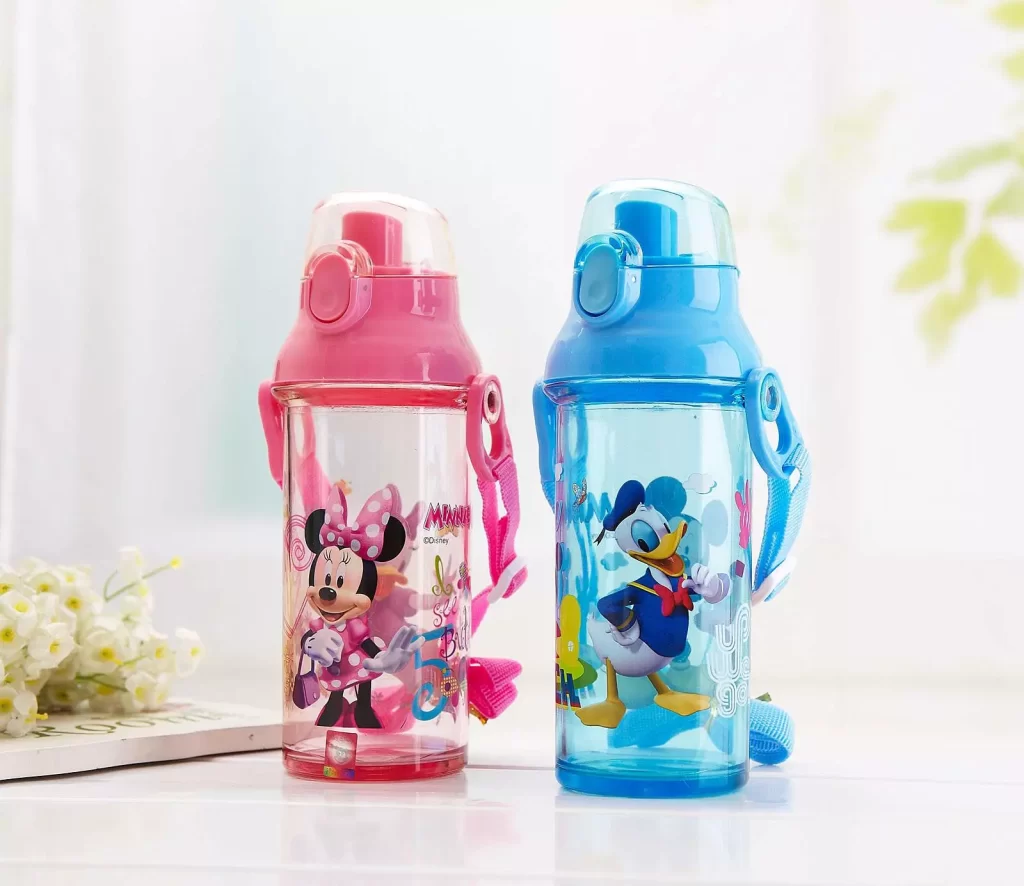
The materials used in a cup should be BPA-free. The construction of the cup should also be durable and easy to clean. The cup will have a non-slip grip that is designed for little hands.
There are also many options for lids. Some are made from plastic, and others are made from glass.
The cup should have a spout for easy feeding. Some cups are made with a straw that can be used for sipping. This allows the baby to transition from a bottle to an open cup easily. It’s also helpful for developmental milestones.
You’ll also want to pick a lid that’s easy to clean. The CamelBak Chute Mag lid is a great choice. It features a magnetic top that helps prevent leaks. It’s also available in larger sizes.
For a more stylish design, consider the Thermos Funtainer.
This bottle is made from insulated stainless steel that helps keep water cold for a long time. It features a non-slip handle and a ring around the bottom. It also features a lid that closes quickly and doesn’t require much pressure.
Another option for the best baby water bottle is the Tritan bottle. This bottle is PVC and Phthalate free and also features a unique straw design that makes it spill-proof.
The Best Baby Water Bottles for Your Little One
As a parent, you want to ensure that your baby is always well-hydrated, whether you’re at home or on the go. A baby water bottle can be a convenient way to give your little one a drink of water whenever they need it.
However, with so many options available, it can be tough to choose the right one. In this article, we’ll take a look at some of the best baby water bottles on the market to help you make an informed decision.
To make it easier to compare the different options, we’ve put together this table:
| Brand | Capacity | Material | Age Range | Features |
| Avent | 9oz | BPA-free plastic | 6 months+ | Soft spout, anti-colic valve |
| Munchkin | 12oz | Stainless steel | 12 months+ | Insulated, spill-proof |
| Nalgene | 12oz | Tritan plastic | 6 months+ | Wide mouth, leak-proof |
| Contigo | 14oz | BPA-free plastic | 6 months+ | Autoseal technology, easy-clean lid |
| Pura | 11oz | Stainless steel | 6 months+ | Converts to sippy cup or straw cup, no plastic parts |
Avent
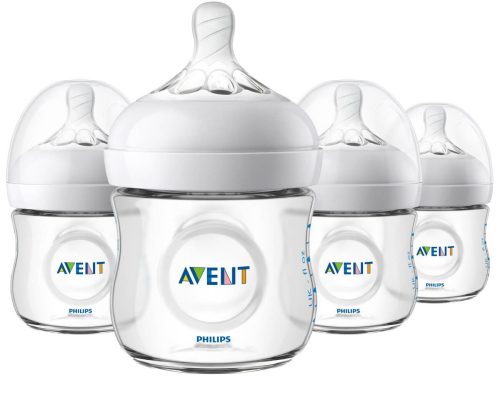
The Avent baby water bottle includes a soft spout that is pleasant on the baby’s gums and is constructed of BPA-free plastic. Also, it has an anti-colic valve that lessens the possibility of colic by preventing air bubbles from accumulating in the bottle. Baby’s 6 months and older can use the bottle, which carries 9 oz of liquid.
Munchkin
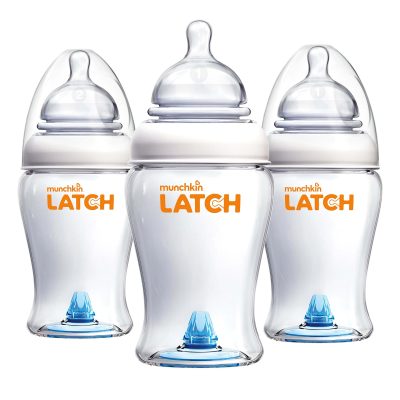
The stainless steel Munchkin infant water bottle is insulated to keep beverages cool for up to 15 hours. Also, it boasts a spill-proof construction that works well for usage while traveling. Baby’s 12 months and older can drink from the bottle, which carries 12 ounces of liquid.
Nalgene
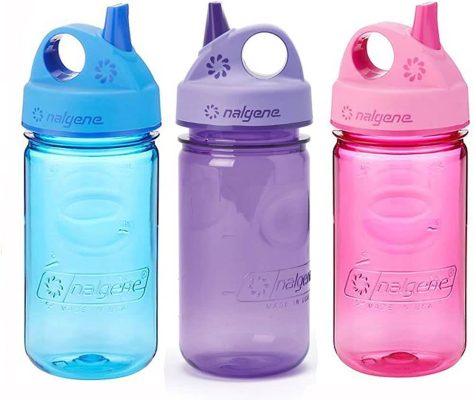
The Nalgene baby water bottle has a wide mouth for simple filling and cleaning and is made of tough Tritan plastic. Furthermore leak-proof, it is the best option for travel. The bottle is appropriate for infants 6 months and older and carries 12 ounces of liquid.
Contigo
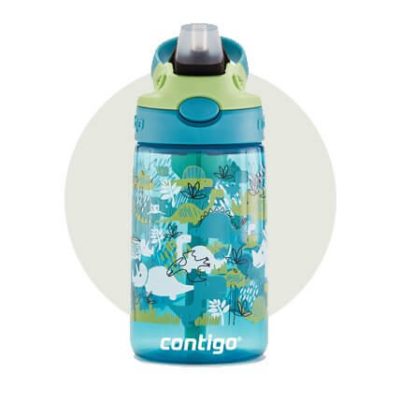
The Contigo baby water bottle has autoseal technology, which means it automatically seals between sips to stop spills, and is constructed of BPA-free plastic. Also, it has a dishwasher-safe lid that is simple to clean. The bottle is appropriate for infants 6 months and older and carries 14 ounces of liquid.
Pura
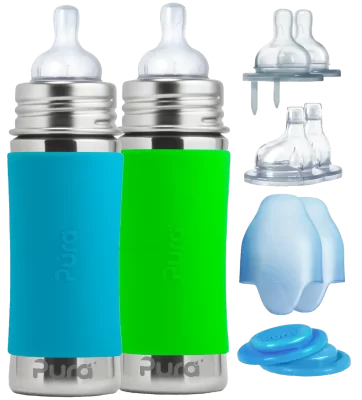
The stainless steel Pura baby water bottle may be changed into a sippy cup or straw cup as your baby grows. It is a fantastic option for parents who want to avoid plastic because it has no plastic components. The bottle is appropriate for infants 6 months and older and holds 11 ounces of liquid.
You can find the most trending baby water bottles this year by clicking here.
Final Thought
In conclusion, your child’s health and safety depend on you choose the correct baby water bottle. It’s critical to be sure that the water you choose is fluoride-free and complies with FDA water quality guidelines, whether you choose bottled, filtered, or spring water. Moreover, hazardous bacteria and germs can be avoided by routinely boiling, steaming, or microwaving your baby’s bottles.
Be sure to take the materials, durability, and simplicity of washing into account when choosing a baby water bottle. Your kid can keep hydrated and healthy while providing you peace of mind with the appropriate bottle.
You May Also Like
FAQ
If produced of BPA-free materials and thoroughly sterilized, plastic water bottles can be safe for infants. It’s crucial to pick a bottle that is simple to clean and free of dangerous substances that can leak into the water.
Any leftover formula or breast milk should be disposed of within two hours following preparation. In the same way, after preparing concentrated liquid formula or mixing water with powdered formula, you should discard any leftovers within one hour. If your child has been using a bottle, it is recommended to throw away any remaining water within one hour.
Although infants can drink bottled water at any age, most experts recommend waiting until they are at least six months old. At this age, infants can begin sips of water to help them stay hydrated, particularly in hot weather or when they are ill.
If a plastic water bottle contains BPA (bisphenol A), which has been linked in some studies to health issues, it may be dangerous. Nonetheless, a lot of plastic water bottles are now produced with BPA-free components that are regarded as safe for usage.
Your baby’s preferred water bottle will depend on their needs. Durable, easy-to-clean BPA-free plastic or stainless steel bottles are available. To aid development, look for bottles with spill-proof lids and straws and non-slip grips for young hands. Choose a trusted brand and use FDA-approved water.




